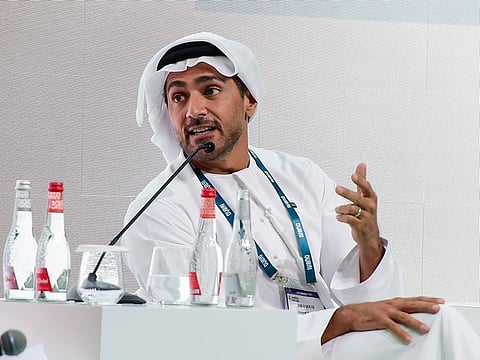ATM 2022: Dubai’s tourist numbers will not be hit by Russia-Ukraine fallout
There is significant pent up demand for travel from Europe, Asia

Dubai: Russia has been among the Top 10 source markets for Dubai in the first quarter despite the Ukraine conflict, according to Dubai Tourism CEO Issam Kazim.
“We knew that there always be geopolitical and socio-economic factors outside of our control that will dictate when and where people travel,” said Kazim during an Arabian Travel Market event.
Kazim said that the emirate’s ‘diversified’ approach towards tourism will help offset any potential impact. “Today, we are having more than 50 markets with direct connectivity to Dubai, and we are really leveraging that opportunity as much as possible.
“Having all the eggs in one basket will always cause problems.”
The CEO added that Russia, Ukraine and all the other CIS (Commonwealth of Independent States) countries are still ‘very important’ to the emirate’s travel industry.
During a media event last month, Kazim said that Dubai saw around 2.2 million visitors in the first two months of 2022. And that tourist numbers this year will be higher than 2021 despite the Russia-Ukraine conflict.
Rising savings
The pandemic has resulted in a lot of pent-up travel demand, and households in Europe and Asia now have built up “excess” savings, according to Scott Livermore, chief economist of Oxford Economics Middle East.
While the Russia-Ukraine conflict will lead to a surge in oil prices and dampen some demand, the overall momentum is towards recovery, said Livermore.
If fuel prices remain at above $100 a barrel, airlines could end up registering bigger losses in 2022 than what is expected by the industry at the moment. The International Air Transport Association (IATA) had previously estimated airlines could lose $11.6 billion – this was on the assumption of a $78 per barrel jet fuel price. The conflict, which pushed jet fuel price to $140/barrel, will add to airlines’ costs as they try to recover from the two-year pandemic.
Livermore added that despite a rebound in business events, international attendees will be “significantly” lower.
Industry heads said that even with global travel restrictions being lifted, most travelers were still resorting to ‘last-minute’ bookings. “Demand for conferences is very big, but the lead time is very short – people are paying attention (to the latest changes) and not taking any risks,” said Jochem-Jan Sleiffer - President Middle-East, Africa and Turkey, Hilton.
Booking preferences have also changed. “Direct bookings are much more common because passengers want more flexibility and they want to be able to make late cancellations,” said Bilal Kabbani - Industry Head, Travel & Tourism - Google
Overall, “We do see a lot of growth in travel-related searches on Google – there is a lot of appetite to travel internationally.”
Eid rush
Meanwhile, passenger traffic at Dubai International Airport has been on the rise, in an indication that UAE residents are once again opting for air travel.
Some 1.9 million travellers were anticipated to pass through DXB between April 29 to May 9 with average daily traffic exceeding 177,000 passengers.
Having clocked 29.1 million in passenger traffic in 2021, Dubai International (DXB) was the world’s busiest airport in terms of international passenger numbers for an eighth consecutive year. In 2020, passenger numbers at DXB had dropped 70 per cent to 25.9 million.
Dubai Airports, citing current forecasts, said that traffic through DXB could reach 55.1 million by the end of 2022. It could even exceed that figure by a “significant margin” if current trends continue.
Demand for flights to Dubai has surged since the emirate removed mandatory PCR testing for fully vaccinated passengers in February. Many flew in from India and Europe to witness the last few days of the Expo 2020 event, which in total saw over 24 million visitors over a six-month period.
Sign up for the Daily Briefing
Get the latest news and updates straight to your inbox



